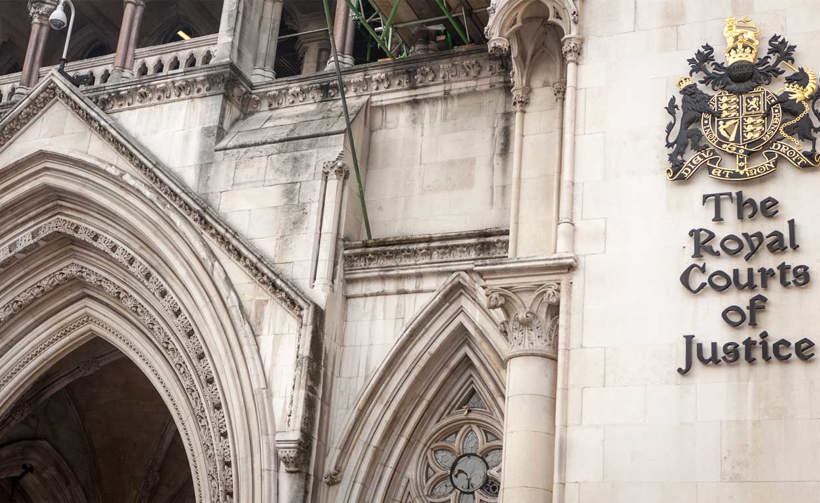
It is not often that an English Court rules on an Act of the Scottish Parliament, but the High Court of Justice has done just that in relation to the Limitation (Child Abuse) (Scotland) Act 2017 in the recent decision of JXJ –v- The Province of Great Britain of the Institute of Brothers of the Christian Schools (“the de la Salle Brothers”). The 2017 Act eliminated the normal 3-year limitation rule to provide victims of child abuse in Scotland the opportunity to pursue damages for their injuries, without concerns that their claims were “time-barred”. However, some provisions outline circumstances where such cases cannot proceed and this is what Mr Justice Chamberlain, among other things, had to consider.
Facts & Background
The claimant, JXJ, brought an action for damages against the defendant, alleging that their members abused him while resident at St. Ninian’s Approved School in Gartmore, Stirlingshire between 1972 and 1974. The most serious allegations were made against John McKinstry, a lay member of staff at the school who was later convicted for assaulting children there. The action was raised in England as both parties were domiciled there, but since the harmful events occurred in Scotland, Scots law applied and, hence, the 2017 Act came into play.
The claimant argued that the defendant was vicariously liable for the abuse committed by its members and Mr McKinstry. The defendant denied that they were vicariously liable for Mr McKinstry’s actions as he was not their employee but that of the Board of Managers, who were appointed by the Archbishop of Glasgow. They agreed that they were vicariously liable for the actions of their members, but denied that abuse had been perpetrated by them. Moreover, they said the action against their members was “time barred” under the 2017 Act on the basis that: (1) a fair trial was not possible (s.17D(2)); and (2) they would be substantially prejudiced if the action were to proceed and that this prejudice outweighs the pursuer’s interest in proceeding (s.17D(3)).
Decision
After a substantial and detailed analysis of the 2017 Act and its background, Mr Justice Chamberlain reached the following conclusions regarding the aforementioned provisions:
-
The Defender bears the burden of demonstrating that a fair trial is not possible under s.17D(2);
-
For s.17D(3) to apply, the defender needs to show that they would be substantially prejudiced, not simply that this is a real possibility;
-
The prejudice needs to be “substantial”, not simply “significant”;
-
A pursuer’s interest in having the action proceed can outweigh the substantial prejudice that a defender would suffer;
-
The seriousness of the abuse suffered and its effects can be factors in assessing the pursuer’s interest. The legislation does not require pursuers to demonstrate why they took so long to seek damages; and
-
Caution must be exercised when applying these provisions by analogy with case law decided before the 2017 Act as different tests were applied.
In light of these findings and the evidence presented, Mr Justice Chamberlain held that the claimant’s grounds of action against the defendants’ members could not proceed on the basis that a fair trial was not possible. Even if he had decided that a fair trial was possible, the claimant’s interests in the action proceeding did not outweigh the substantial prejudice that the defenders would suffer. This was mainly due to the fact that the alleged abuse happened between 45 and 47 years ago, key witnesses were dead and there was a lack of relevant evidence concerning the allegations.
However, with regard to Mr McKinstry’s assaults, it was held that a fair trial was possible and that there would be no substantial prejudice in progressing the action on this basis. Interestingly, the fact that not all grounds of action could not proceed, did not mean that the case had to be dismissed as a whole. However, Mr Justice Chamberlain went on to dismiss the action regarding Mr McKinstry’s acts because, in his view, the defendant was not vicariously liable for those acts. Given that he was not a member of the defendants’ order, had been employed by the Board of Managers and did not engage in any activities to further or pursue the defendants’ “mission”, he did not have a relationship with them which was “akin to employment”.
Comment
From a pursuer’s perspective, this is a bittersweet decision.
Mr Justice Chamberlain provided a much needed, in-depth analysis on the application of s.17D(2) and (3) of the 2017 Act which, overall, appeared more pursuer-friendly, in that he interpreted the tests under these provisions as being more stringent than those applied pre-2017 Act. It is also gratifying to know that a pursuer’s interest in having the case proceed can outweigh any substantial prejudice that a defender would consequently suffer.
On the other hand, since it is an English decision, it is not binding on Scottish courts and, no doubt, defenders will want a chance to persuade a Scottish judge to interpret the tests under the provisions as being no more burdensome than the pre-2017 Act tests. Also, since two out of the three grounds of action were dismissed under the 2017 Act, there is now an up-to-date domestic authority which defenders can refer to by analogy to justify dismissing an action.
Notwithstanding this, the most intriguing feature of the decision is the dismissal of the majority of the claimant’s grounds of action under the Act without dismissing the case as a whole, which is what would ordinarily happen if a case is time-barred. It is certainly hoped that the Scottish courts will follow Mr Justice Chamberlain’s lead in this respect.
Finally, the case provides a further reminder of the importance of clearly establishing the extent of the relationship between the alleged abuser and the party being sued for that abuse. See our blog on this point which arose in Barclays Bank v Various Claimants.
Take the next step
- Call us on 0131 226 5151
